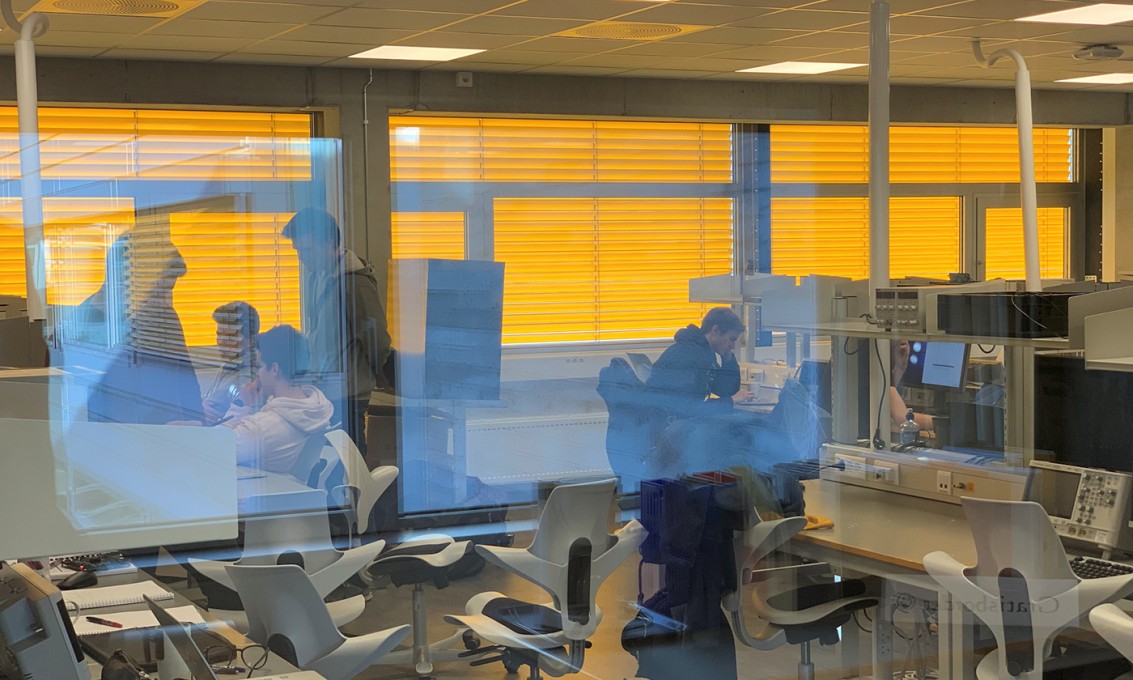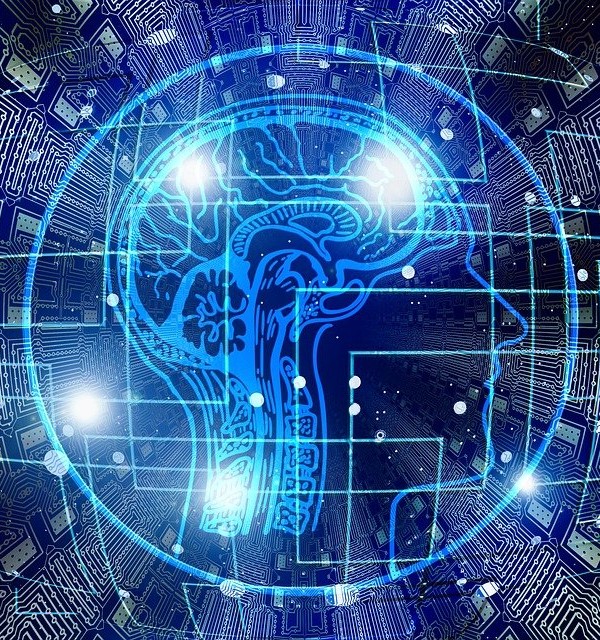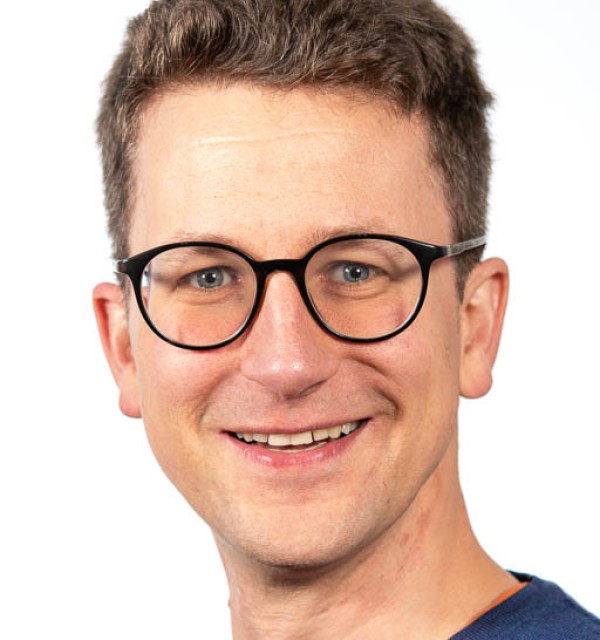Data Science lets engineering students from different fields become experts in machine learning and artificial intelligence.
2 years/4 semesters
English
August every year

About the study programme
Data Science students will learn to extract relevant information from a compilation of large datasets from different sources. Data Scientists are the experts needed to understand, apply, and improve data driven methods like machine learning and artificial intelligence. The ability to create, manage and exploit data has become one of the most important challenges for practitioners in most industries. Students with expertise in Data Science will be highly sought after in the labor market, where they will contribute to the development of smart solutions and digitisation.
- This study comes in the wake of Big Data and the need to find useful information in them. Analysis, understanding, and use of these data require interdisciplinary skills and knowledge.
- This master’s programme creates opportunities for students from different engineering backgrounds who want to focus more on digitisation and data analysis.
- You can write your master’s thesis in collaboration with industry and participate in innovation and research. UiS has a strong research focus on analysis of large datasets, Cloud solutions, and machine learning.
Career prospects
With a master’s degree in Data Science, you can get a position in almost all industries. Some examples of businesses where you can find employment are consulting companies, telecommunications companies, energy related businesses, hospitals, and other public agencies. Specialisation in Data Science provides a basis for work in data analysis and development of data processing systems for the whole data lifecycle. It builds knowledge and skills in advanced statistics, data mining, machine learning and processing of large data volumes.
Completed master’s degree in Data Science provides the basis for admission to the PhD programme in Information technology, mathematics and physics.
Learning outcomes
All study programmes at the UiS have a set of defined learning targets. Read more about the learning outcome for this study programme.
After having completed the master’s programme in Data Science, the student shall have acquired the following learning outcomes, in terms of knowledge, skills and general competences:
Knowledge
K1: Advanced knowledge within Data Science, which includes data processing, machine learning, data extraction, statistics and typical programming languages for the area, including: Python and R.
K2: Specialised insightinto data analysis.
K3: In-depth knowledge of scientific theory and methods in Data Science.
K4: Apply knowledge about algorithms for statistical analysis, machine learning or data extraction in new areas within data science.
K5: Analyse professional issues based on the fourth science paradigm, 4Vs of big data (volume, velocity, variety, and variability), data-driven approach, CRISP-DM (cross-industry standard process for data mining).
Skills
S1: Analyse and relate critically to different sources of information, datasets and data processes; and apply these to structure and formulate data-driven reasoning.
S2: Analyse existing theories, methods and interpretations within the subject area and work independently in applying and evaluating different storage and data processing technologies.
S3: Use CRISP-DM and scientific methods to develop data analysis programs in an independent way.
S4: Conduct independent, limited data collection, analysis and evaluation according to established engineering principles in accordance with current research ethical standards.
General Competence
G1: Analyse relevant ethical issues arising from data usage and data recovery.
G2: Apply their knowledge and skills in new areas to carry out advanced tasks and projects related to data processing, data analysis and optimisation.
G3: Communicate results of comprehensive data analysis and development work, and master Data Science expressions.
G4: Communicate on issues, analyses and conclusions related to data-driven research and development, both with specialists and to the general public.
G5: Contribute to new ideas and innovation processes by introducing data-driven approaches, comprehensive data analysis and development work, and master Data Science expressions.
Study plan and courses
Enrolment year: 2025
-
Compulsory courses
-
Cloud Computing Technologies
Year 1, semester 1
-
Data-intensive Systems and Engineering
Year 1, semester 1
-
Introduction to Data Science
Year 1, semester 1
-
Statistical Modeling and Simulation
Year 1, semester 1
-
Generative AI
Year 1, semester 2
-
Algorithm Theory
Year 1, semester 2
-
Machine Learning
Year 1, semester 2
-
Master's Thesis in Data Science
Year 2, semester 3
-
-
3rd semester at UiS or Exchange Studies
-
Courses at UiS 3rd semester
-
Choose one course
-
Investment Analysis
Year 2, semester 3
-
Project Management
Year 2, semester 3
-
-
Recommended electives 3rd semester
-
Reinforcement Learning
Year 2, semester 3
-
Information Retrieval and Text Mining
Year 2, semester 3
-
Image Processing and Computer Vision
Year 2, semester 3
-
Statistical Learning
Year 2, semester 3
-
-
Other electives 3rd semester
-
Discrete Simulation and Performance Analysis
Year 2, semester 3
-
Project in Computer Science
Year 2, semester 3
-
Deep Neural Networks
Year 2, semester 3
-
Probability and Statistics 2
Year 2, semester 3
-
-
-
Exchange 3rd semester
-
Exchange Studies 3rd semester
-
-
Academic requirements
A Bachelor's degree in engineering or equivalent is required. The degree must include at least:
- 10 ECTS credits in programming + 10 ECTS informatics/computer science
- The equivalent of 25 ECTS credits in mathematics, 5 ECTS credits in statistics and 7,5 ECTS credits in Physics.
In case programming and computer engineering subjects cannot be confirmed through the The Bologna Process Framework for Learning Outcomes, at least 50 credits in programming and computer engineering subjects will be required.
Only degrees from accredited universities from the following countries are confirmed through the Bologna Process: List of countries.
If the country where you completed your degree is not included in the list above, a minimum of 50 credits in programming and computer engineering subjects is required.
If you have completed studies/courses outside the University of Stavanger, you must upload course descriptions that have clearly defined curriculum (learning outcomes). The course names and codes on the course descriptions must match the transcript of records. If you do not provide course descirptions, you might risk your application to not be prioritized.
Admission to this master's programme requires a minimum grade average comparable to a Norwegian C (according to ECTS Standards) in your bachelor's degree. Applicants with a result Second-class lower Division or lower are not qualified for admission.
Application and admission
Contact
For inquiries regarding admission to international Master's programmes, send an email to: admissions@uis.no.
Student life at UiS
Student exchange
By going on exchange to one of our partner institutions abroad as part of your studies, you will have an opportunity to get a unique education. In addition to improving your career opportunities, you grow as a person and gain the ability to greater reflect on the topics you study as part of your degree.
Schedule for the exchange
3rd semester
Students can go on a study abroad experience during the 3rd semester of the master's programme in Data Science. Abroad, you must choose courses that provide an equivalent specialisation in your field of study, and these must be approved before you leave. It is also important that the courses you are going to take abroad do not overlap with courses you have already taken or will take later in your studies. It is recommended to think about your specialisation and/or your field of interest. You must choose at least one non-science/technological course equivalent to 5-10 ECTS (e.g. economics, languages, ethics, project management, green transition or similar).
More opportunities
In addition to the recommended universities listed below, UiS has a number of agreements with universities outside Europe that are applicable to all students at UiS, provided that they find a relevant subject offering. Within the Nordic region, all students can use the Nordlys and Nordtek networks.
Contact your student adviser at the Faculty if you have questions about guidance and pre-approval of courses: Sheryl Josdal
General questions about exchange:
Go to the exchange guide in the Digital student service desk
See where you can travel
Australia
The University of Adelaide
Danmark
Aalborg Universitet
Frankrike
Grenoble Institute of Technology
Italia
Politecnico di Milano University
Italia
University of Pisa
Nederland
University of Twente, Enschede
Polen
Lodz University of Technology
Tyskland
RWTH Aachen University
Tyskland
Technical University of Munich
Frequently asked questions
Questions about the study programme? Find more information here.
What do you learn when you choose the study programme Computer Science?
Master’s programme in Computer Science teaches you the management, design and programming of computer systems. The ability to integrate knowledge and skills in security, reliability and scalability together with algorithm theory and statistics is necessary to respond to challenges in computer systems in all industries.
The programme provides a basis for work with the development and planning of commercial computer systems for various purposes. You gain knowledge and skills in network security, reliability of distributed systems, simulation and modeling.
What do you learn when you choose the study programme Data Science?
Master’s programme in Data Science teaches you to extract relevant information from a compilation of large data sets from different sources. The ability to create, manage and utilize data has become one of the most important challenges for practitioners in almost all disciplines, sectors and industries.
Data Science provides a basis for work in data analysis and development of data processing systems for the entire data life cycle. You gain knowledge and skills in advanced statistics, data mining, machine learning and processing large amounts of data. The study will be highly sought after in the future labor market, with the development of smart solutions such as in smart cities, with smart energy and digitalisation.
You may also be interested in
Contact
Faculty Administration TN
Kontor for utdanningsadministrative tjenester
Department of Electrical Engineering and Computer Science








